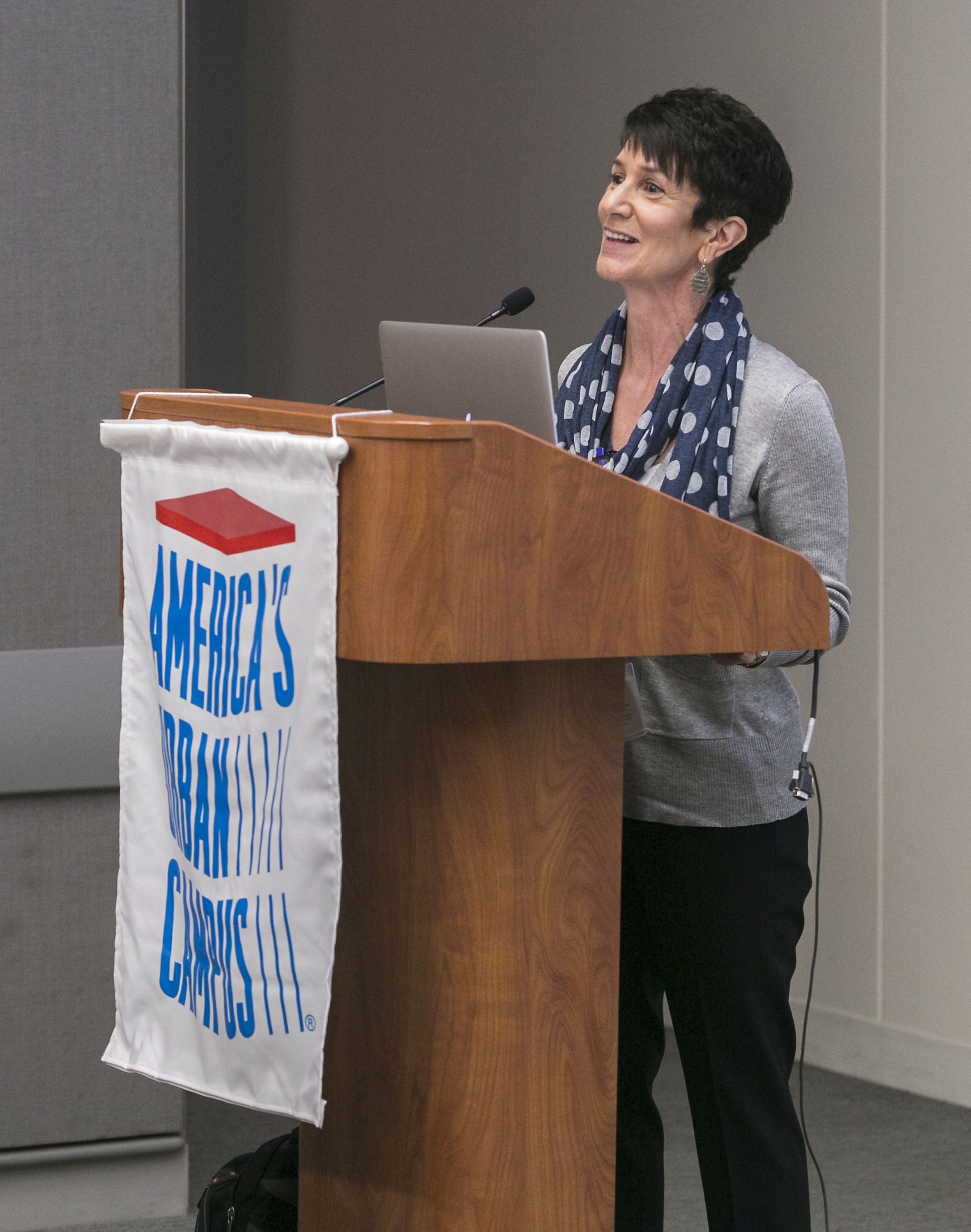
Take Back the Halls works with Chicago Public Schools to teach students about healthy relationships. (iStock)According to the National Coalition Against Domestic Violence, one in three women and one in four men have experienced domestic violence. DePaul students and faculty are working to reduce that number by talking to Chicago Public Schools students about preventing relationship violence before it escalates. The program is celebrating its 20th anniversary this year.
“My whole career has been in the field of domestic violence,” says Heather Flett, executive director and founder of nonprofit Taking Back our Lives, which facilitates the program. “I was doing work in shelters, the court system, mental health centers and hospitals after the violence had happened, and it was just a revolving door. I wanted to shift my focus to building skills in young people to prevent something that can be very devastating.”
Take Back the Halls facilitators bring a healthy relationship curriculum into eighth and ninth grade classrooms. In Illinois, sexual health education is a required part of the physical education curriculum, but many teachers don’t feel equipped to cover healthy relationships.
“Take Back the Halls facilitators are bringing forward issues facing our youth and creating an environment where healthy conversations take place,” says Allison Heraty, a physical education teacher at Hernandez Middle School. “They take students and make them leaders, choosing projects that benefit our school community. Students are feeling more and more comfortable in their own relationships, and you can see these relationships developing in our schools.”
DePaul graduate and undergraduate students complete internships with Take Back the Halls each year. They are integral to the development of curriculum and day-to-day interactions with students. Throughout the course of the program, students transition from a supportive mentorship role to leading instruction.
 Associate Professor Beth Catlett is co-director of Take Back the Halls. (DePaul University/Jamie Moncrief)
Associate Professor Beth Catlett is co-director of Take Back the Halls. (DePaul University/Jamie Moncrief)“In the future, I want to work with teens and children, so it’s a great fit,” says Kashara Allen, a DePaul graduate student pursuing her master’s in social work and intern with Take Back the Halls.
“The program has a similar structure to cognitive behavioral theory because we’re working on supporting young adults in regulating their emotions,” Allen says. “It goes hand in hand with my classes and gives me an opportunity to practice teaching emotional regulation as well as working with young people.”
Many of the DePaul interns are committed to preventing domestic violence and plan to pursue employment in similar fields.
“The Take Back the Halls program gives our interns amazing training and direct hands-on experience providing social services,” says
Beth Catlett, director of the Beck Research Initiative for Women, Gender and Community and associate professor of women and gender studies.
“With that background, many of our interns have been able to get great jobs doing similar work post-graduation. It is wonderful to see this program not only benefit participants but also help our student interns get started in their careers,” says Catlett, who has been co-director of Take Back the Halls since its inception.
The curriculum, which is a result of collaboration between students and Flett, is designed to take complex conversations into a comfortable space. It is often easier for CPS students to connect with DePaul interns on these topics since many are closer in age.
“One of the things that I really like is, when we go over consent, they have an opportunity to write little scripts on how they would ask and give consent,” Allen says. “I find that to be fun with eighth graders because they get to be creative but also learn about how to accept someone telling them no. It's giving them the opportunity to not only think about how to get consent but also how to accept being denied consent.”
Reflecting on the impact of the program, Catlett looks forward to continuing this work and facilitating positive engagement with schools.
“It’s really beautiful to see these young people, who may come into the class thinking that healthy relationships aren’t possible, learn tools to facilitate positive relationships for themselves and others,” says Catlett.